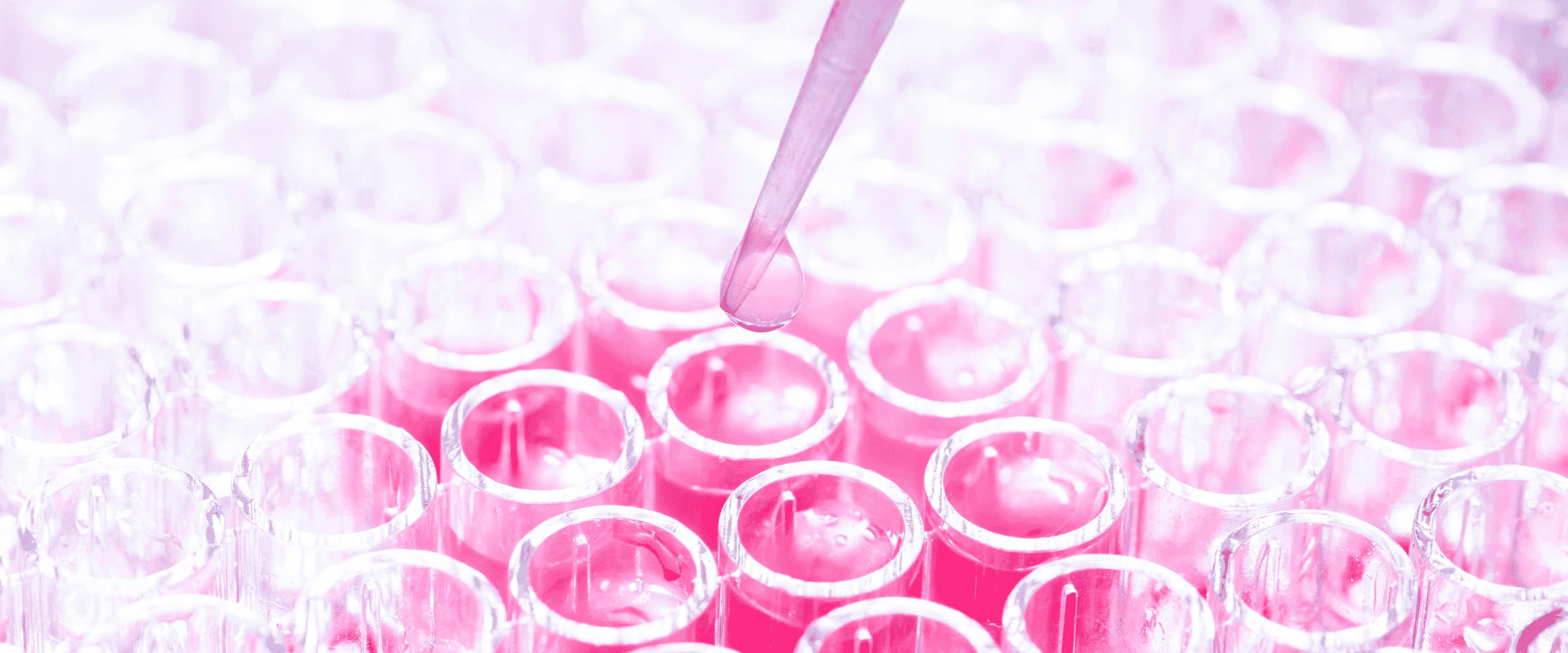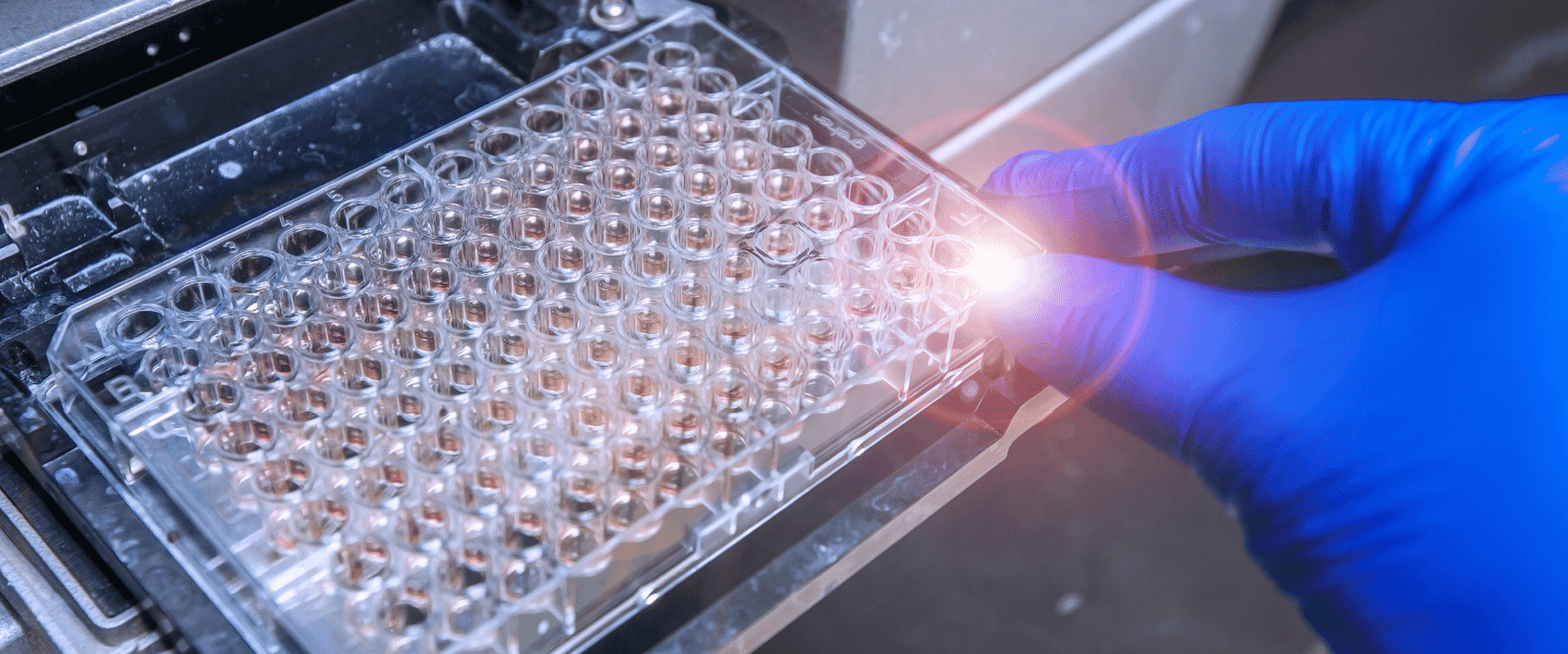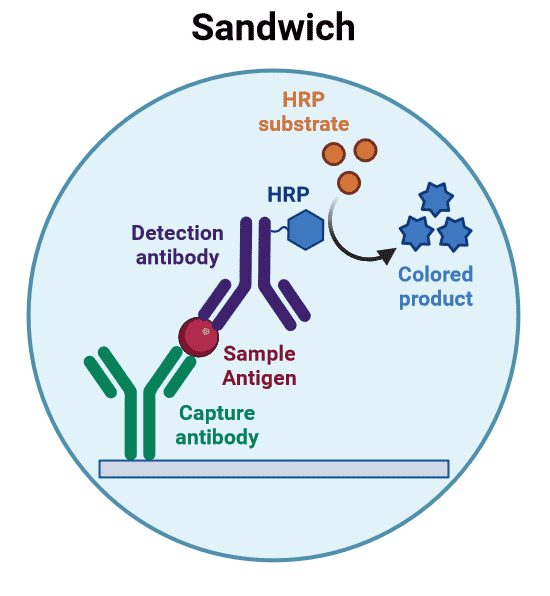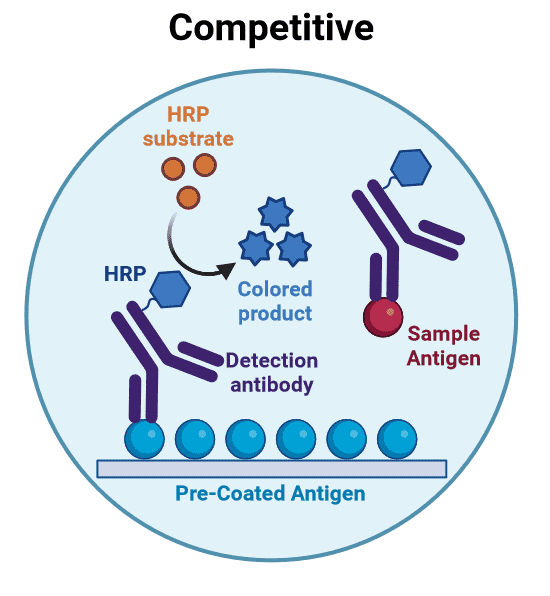The enzyme-linked immunosorbent assay (ELISA) detects and quantifies the amount of a target antigen in a liquid sample. ELISAs are typically performed in 96-well microplates that have been precoated with antigens or antibodies, and use enzyme-conjugated antibodies to produce a colored signal indicating the concentration of the protein of interest.
We offer over 23,500 standard ELISA kits for the quantification and quantitation of more than 5,000 target proteins in samples from human, mouse, rat, bovine, porcine, rabbit, and many other species
Key points:

Our complete ELISA guide contains everything you need to run successful ELISA experiments. It covers the history of ELISAs, ELISA formats, step-by-step protocols, control selection, and troubleshooting tips and tricks.

Choose from over 4,000 90 minute ELISA kits against more than 2,000 human and mouse protein targets. These ELISAs produce accurate, reproducible results in just 90 minutes, with a single wash step.
Our gold standard ELISA Kits spanning a wide range of targets
Obtain results in less than half the time of a conventional ELISA
Femtogram sensitivity for low analyte samples
Save precious sample without compromise on sensitivity
In situ quantification of targets directly from cells
Validated complementary antibodies, ideal for assay development

Sandwich ELISA: Sandwich ELISAs use two antibodies called a matched antibody pair, which bind to distinct epitopes on the same target. The use of two antibodies results in very high target specificity and low background signal.

Competitive ELISA: Competitive ELISAs are pre-coated with antigen that competes with the antigen in the sample for antibody binding. Antibody bound to the sample antigen is washed away, so less signal indicates more antigen in the sample. Competitive ELISAs are highly flexible and ideal for small antigens that lack multiple epitopes.
International Journal of Molecular Sciences